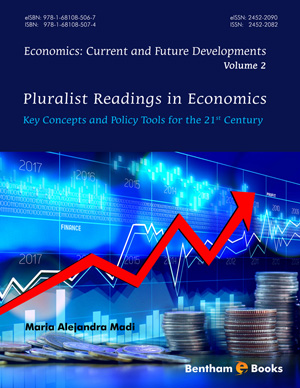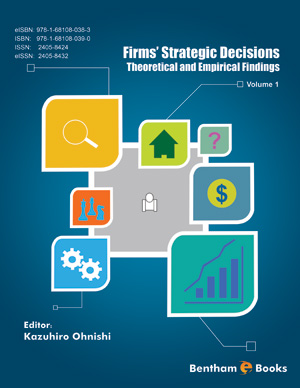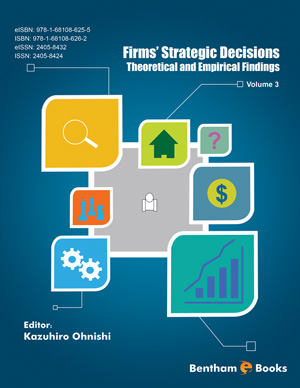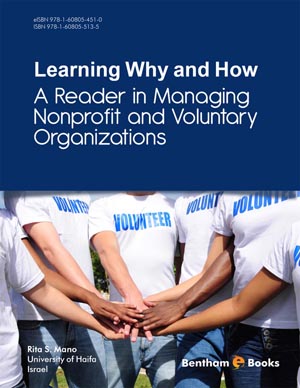Book Volume 2
Evolution of Capitalism
Page: 3-20 (18)
Author: Maria Alejandra Madi
DOI: 10.2174/9781681085067117020003
PDF Price: $15
Abstract
This chapter presents three critical appreciations about the capitalist system since the First Industrial Revolution in Britain until current globalization. Firstly, we consider Karl Polanyi’s contribution about the First Industrial Revolution's effects on economic and social life. Then, we address the contribution of Rudolf Hilferding whose studies on financial capital highlights the role of banks in the expansion of large corporations and capital markets in the early 1900s. Finally, we consider Eric Hobsbawm's ideas about contemporary globalization that intertwines economic and political challenges along with social and cultural outcomes.
Capital, Labour and Power
Page: 21-37 (17)
Author: Maria Alejandra Madi
DOI: 10.2174/9781681085067117020004
PDF Price: $15
Abstract
This chapter addresses the contributions of Karl Marx, Michal Kalecki and John Galbraith to these power issues. Firstly, we begin with Karl Marx who pointed out the centrality of class analysis to the study of power in capitalism. Then, we consider the analysis of Michal Kalecki on the degree of monopoly. Proceeding from a Marxist tradition, his analysis highlights important contemporary issues related to power in market structures and their outcomes in terms of income distribution. Finally, we present the main ideas of John Galbraith on the modern institutions. He deeply analysed the institutional set up of large corporations and highlighted their power in the markets and their relations with the nation-state.
Money
Page: 38-57 (20)
Author: Maria Alejandra Madi
DOI: 10.2174/9781681085067117020005
PDF Price: $15
Abstract
This chapter aims to present different perspectives on the theory of money. Firstly, we refer to Eugen von Böhm-Bawerk’s theoretical approach developed in the late 1880s that highlights the concept of interest rate in the context of inter-temporal allocation decisions. Then, we consider John Maynard Keynes’s contribution privileges that money is non-neutral and that the rate of interest is a monetary phenomenon. Finally, we include the Keynesian approach developed by James Tobin to monetary issues in bank money and banking strategies in order to clarify the dynamics of banks’ decisions toward profitable assets.
Prices
Page: 58-77 (20)
Author: Maria Alejandra Madi
DOI: 10.2174/9781681085067117020006
PDF Price: $15
Abstract
This chapter presents the contributions of Alfred Marshall, Joan Robinson and Milton Friedman to the study of prices. Firstly, Marshall highlighted the forces that shape the perfect markets and its prices. Secondly, Robinson considered the dynamics of real-world markets where imperfect competition seems to dominate. She showed how imperfect competition affects pricing and strategic decision making. Finally, Milton Friedman presented an analysis of inflation that restates the relevance of the quantity theory of money to explain the roots of inflation. His approach to the trade-off between inflation and unemployment has had deep consequences in the neoliberal economic policy agenda.
Growth and Economic Cycles
Page: 78-98 (21)
Author: Maria Alejandra Madi
DOI: 10.2174/9781681085067117020007
PDF Price: $15
Abstract
This chapter explores the foundations of some theories about economic growth and business cycles by surveying influential works of political economy. Firstly, we examine Adam Smith’s contribution to the study of the impacts of the division and the specialization of labour on productivity and economic growth in the context of free markets. Then, we present the contribution of Joseph Schumpeter to the capitalist development based on cyclical innovations as structural changes in a longterm process of creative destruction. Finally, we consider the more recent writings of Hyman Minsky that examined the real-world of financial institutions and studied issues connected with growth, business cycles and financial institutions.
Economic Policy
Page: 99-118 (20)
Author: Maria Alejandra Madi
DOI: 10.2174/9781681085067117020008
PDF Price: $15
Abstract
This chapter focuses on the writings of David Ricardo, John Maynard Keynes and Friedrich von Hayek - economists whose contributions to the economic policy debate have been outstanding in real-world economics. Firstly, we present the proposal of David Ricardo, who addresses, in the 19th century, that international free trade could be beneficial for all countries. Then, we present Hayek’s theoretical contribution to economic policy reinforced the free market fundamentalism over government interventions. Finally, we include Robert Mundell’s contribution to the study of macroeconomic policy challenges in open economies which clearly predicted the outcomes of the transformations in exchange rate regimes and global financial regulation after the 1970s.
Welfare, Social Justice and Governance
Page: 119-137 (19)
Author: Maria Alejandra Madi
DOI: 10.2174/9781681085067117020009
PDF Price: $15
Abstract
This chapter provides a range of economic and philosophical perspectives drawing from the classic writings of Arthur Pigou, Amartya Sen and Elinor Ostrom. Firstly, we present the contribution of Arthur Pigou that highlights the relevance of government interventions to address the impacts of externalities on social welfare. Then, we consider Amartya Sen’s ideas that show deep concerns about justice in contemporary economic theory and public policy. Finally, we present the contribution of Elinor Ostrom to the management of common-pool resources, at local and global levels.
Conclusion
Page: 137-149 (13)
Author: Maria Alejandra Madi
DOI: 10.2174/9781681085067117020010
PDF Price: $15
Introduction
The era of globalization has brought about unprecedented social, political, and environmental challenges for policy makers around the world due to the global impact of economic decisions. In view of these challenges, economics, as a discipline, needs to be taught with the goal of broadening the dialogue on social responsibility, and developing a new pluralist culture of decision making which is inclusive to different schools of economic thought. Pluralist Readings in Economics: Key-concepts and policy tools for the 21st century highlights the long-standing debates regarding economic systems, business models, criteria of justice, and economic policies by providing conceptual openings to economic theory in an engaging and accessible way. The author provides broad coverage of relevant topics through the selection of influential economic thinkers and introduces the reader to their ideas, context, and relevant interpretations. While dealing with complex problems, the author goes beyond commonly known concepts by presenting questions on the historical context of globalization. The study of economic concepts in this way leads to asking new questions concerning various issues relevant to economics. The goal of the text is to provide an interdisciplinary perspective to readers in order to equip them with information that is key to address global economic challenges. Thus, this pluralist approach calls for a reflection of the evolution of global social and economic conditions to demonstrate problem solving approaches that align with the goal of addressing these challenges. Pluralist Readings in Economics: Key-concepts and policy tools for the 21st century is suitable to a broad interdisciplinary readership as it will benefit all those who seek to better understand the complex stakes of the capitalist system, in the tensions between regulatory policies, free market equilibria, and participatory openings in governance. This introductory work also prepares the reader for debates and discussion in economic theory aimed at shaping policy transformations towards a more equitable, just and sustainable world.










.jpg)

